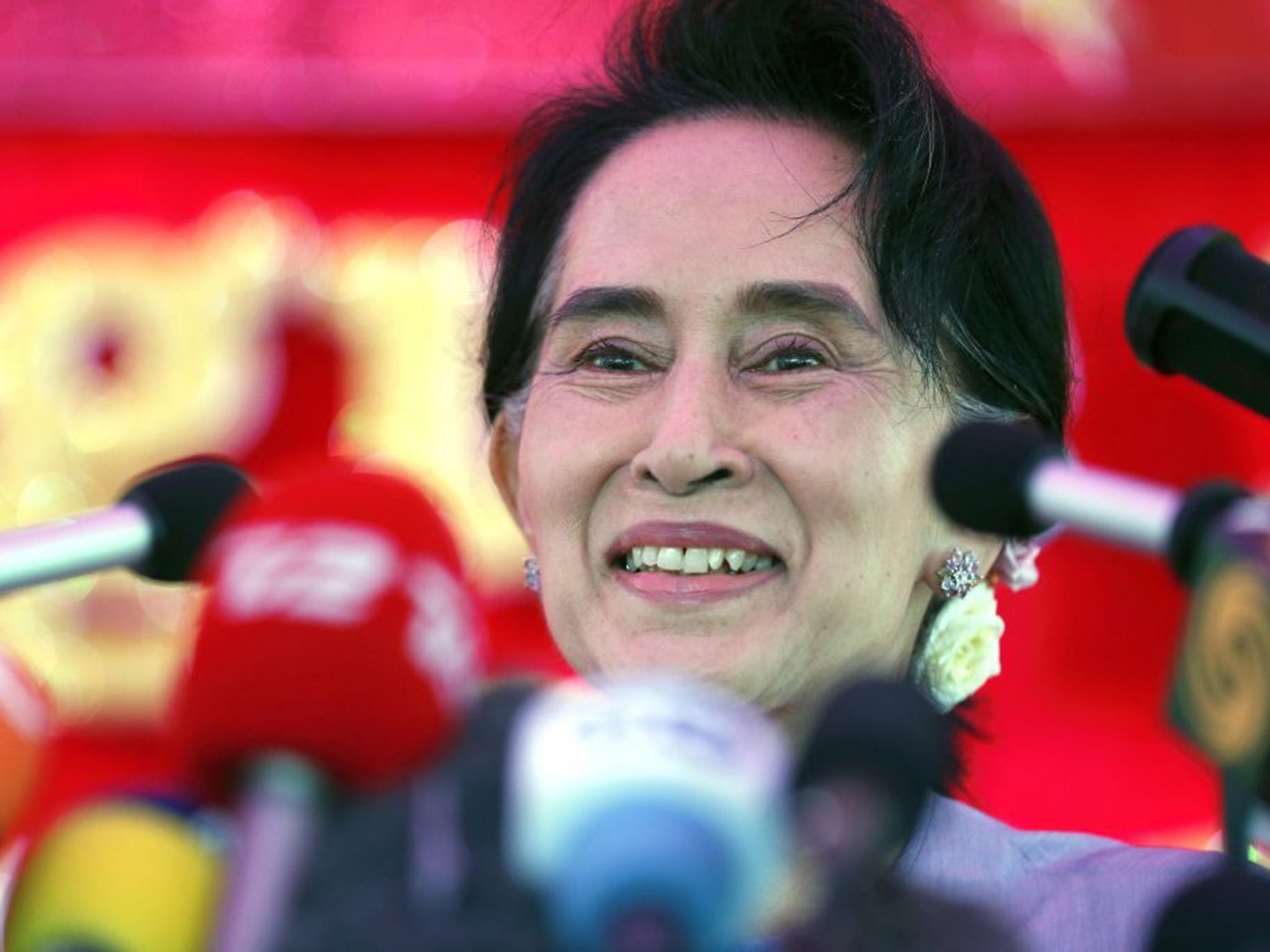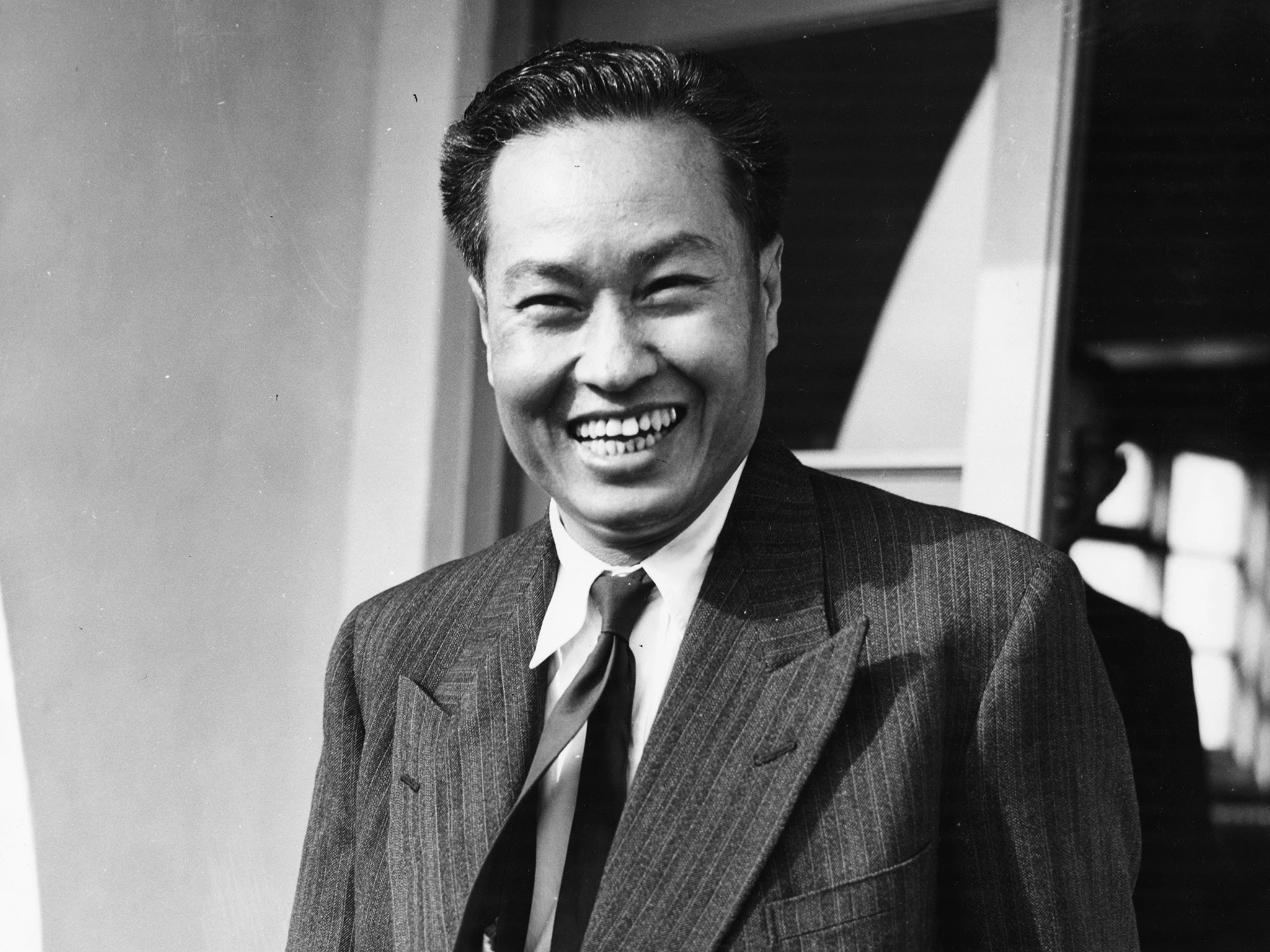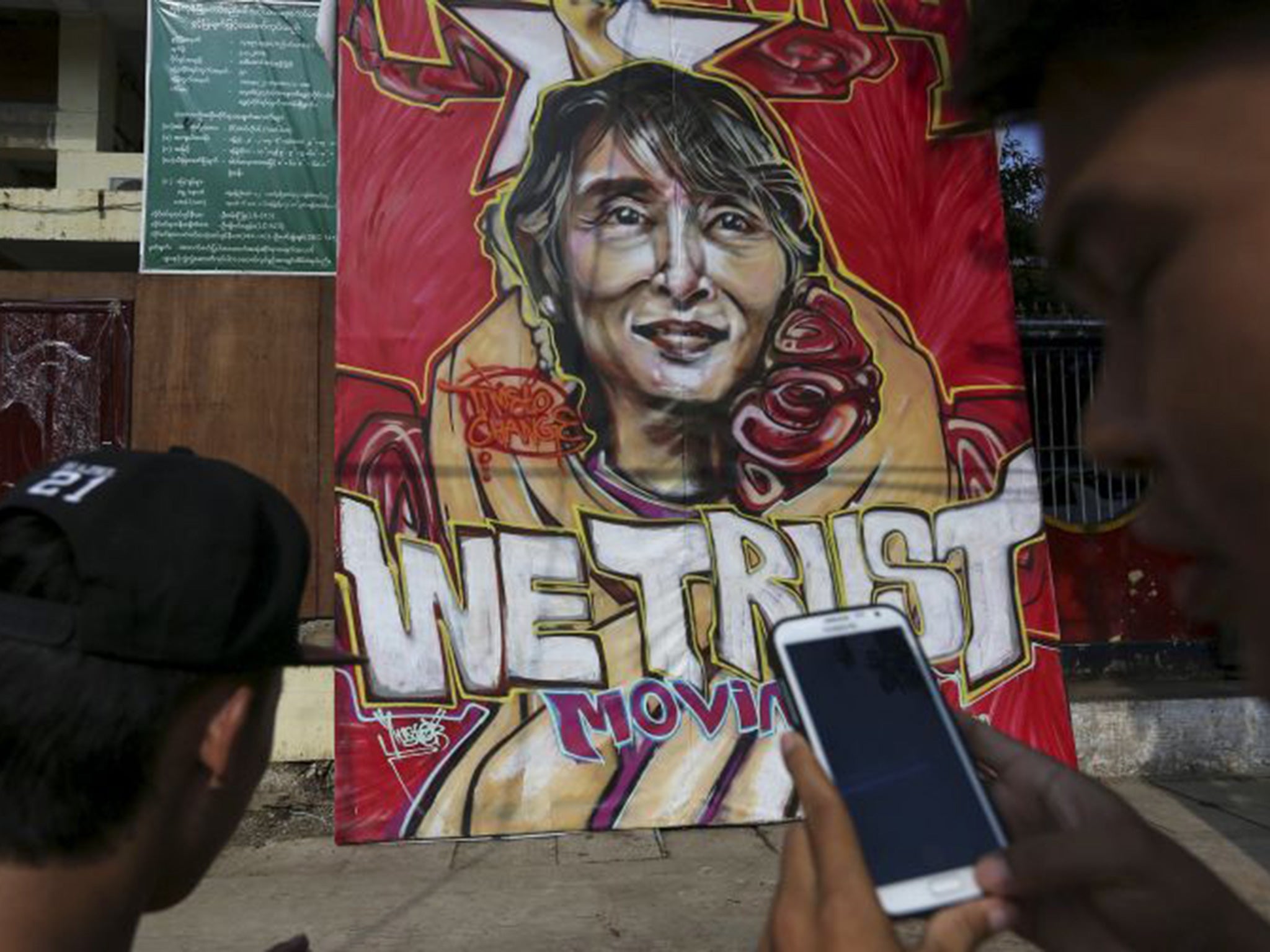Burma election: The nation finally has the chance to step out of its past of shadows and fear
World View: The country is already unrecognisable from the paranoid surveillance state of five years ago


It’s official: with 80 per cent of results declared, Aung San Suu Kyi’s National League for Democracy has won a sensational victory in Burma’s general election. With more than two-thirds of seats in both houses of parliament, the party is now in a position to elect Burma’s next president.
That person cannot be Ms Suu Kyi, but it will be a person who will act according to her desires. Great changes are doubtless in store. But already Burma is unrecognisable from the paranoid surveillance state that five years ago freed Ms Suu Kyi from 15 years of house arrest.
When I was expelled from Burma shortly before her release, for activities incompatible with my tourist visa – namely, reporting for this newspaper – Burma was the quaintest destination in Asia. The nation’s long downhill skid initiated by the dictator General Ne Win had left this fertile, fascinating country bankrupt and miserable. Its population was largely locked away from the outside world. Formerly known as “the rice bowl of Asia”, it was now unable even to feed itself, let alone hold up its head in the company of Asian Tigers such as Malaysia and Indonesia. For many years, its only significant export to the West was meditation.

The demise of Ne Win left the military still in charge, and now began the age of the cronies, as a handful of local businessmen in cahoots with top generals grew obscenely rich. For the majority, however, life remained basic. The regime continued to spend about one-quarter of the nation’s earnings on the military, but only tiny sums on education and health. The few cars on the roads were beaten-up Japanese models, imported second-hand when well past their best.
Other countries in the region enjoyed a tourism bonanza, but only a trickle of foreigners bothered with Burma, with its ugly reputation for killing and locking up protesters. And those few who came had to wrestle with two different exchange rates for the kyat, the official rate ten times higher than the one people actually used. They had to get to grips with a country that possessed no ATMs, where you were sunk without cash – and that cash had to be US dollars in pristine condition.
Mobile phones on international networks did not function here: “A Burma expert,” one businessman put it, “is a guy who knows his Blackberry won’t work when he gets off the plane.” Indeed, for anyone craving a break from technology, Burma was ideal: the internet worked no better than mobile phones did. The regime had understood the risks that social media posed to it, with the result that logging on was a mug’s game. The only printed news source was a farcically dull state-sponsored daily, the New Light of Myanmar, with its obligatory front-page splash of a general touring a factory. More reliable information could be obtained from friendly locals, but only at great risk to all concerned on account of the ubiquitous spooks and informers.

Much has changed during five years of reform. Today every teenager has a smartphone, the internet functions tolerably well and several daily papers publish without pre-censorship, although they face new hazards of intimidation and malicious prosecution.
There are downsides to all this: Rangoon is mutating into just another chaotic Asian megalopolis, with soaring new buildings and snarled traffic. But the spooks and informers have gone: the shadow of fear that hung over the Burmese for so many years has melted away.
Join our commenting forum
Join thought-provoking conversations, follow other Independent readers and see their replies
Comments